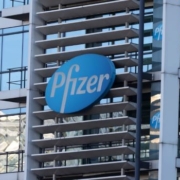Remember back in March and April and May of 2020, when people prefaced their plans for the future with, “When we get back to normal”? We never did, and we never will. The COVID experience has forever changed how all of us view the world, how we interact with each other … and, of course, how we interact with healthcare brands and what we expect from them. In seeking out insights from pharma’s wise heads for Med Ad News’ annual Agenda report, we tried to maneuver around COVID at least a little, to see what else was going on in the industry. But the plain fact is that we couldn’t, not really.
Sparked by more than two years of virtual meetings due to the COVID-19 pandemic, Pfizer is cutting the company’s sales staff as more and more physicians’ offices and healthcare facilities prefer fewer face-to-face interactions with vendors. That preference for a virtual experience is expected to remain even after the pandemic wanes.
How NPP Is Changing With the Onset of COVID-19
Artificial Intelligence, At-Home Testing, Behavioral Changes, Conferences, Coronavirus Disease (COVID-19) Pandemic, Digital, Doctors, Electronic Health Records, HCPs, Health Insurance, Healthcare Communications Agencies, Marketing & Advertising, Physicians, Sales Forces, Sales Reps, Social Media, Telemedicine, Trends, VeevaGreater Than One’s Christa Toole analyzes how healthcare marketers are adjusting to the current health crisis in a variety of ways.
Amarin Corp. provided an update, noting that the company is increasing revenue guidance for 2019 and is planning to expand the sales force for Vascepa due to faster-than-expected growth.
Despite the general anxiety over the impact of President Trump’s policies, when it comes to pharmaceutical sales forces, little of what he does will actually affect pharma sales-force strategies. The trends that are continuing to play out are declining rep access, the size of pharma sales forces, and the struggle with the concept of key account management, as well as trying to figure out how reps should be compensated.
There are 3 key facts life sciences companies need to know about real-time or near real-time medical claims data to support timely business decision-making.
Addition of Biologic KRYSTEXXA® (pegloticase) Expands and Diversifies Horizon’s Orphan Business; Leverages Rheumatology Expertise and Infrastructure; Transaction Is Expected to Be Immediately Accretive to Adjusted EBITDA in 2016; Conference Call […]
Special Feature — Ad-Ventures in Marketing VIII
Approvals, Apps, Apps, Big Data, Business, Cloud, Contraception, CRM, Data, December 2015, Facebook, FDA, FDA/Regulatory, Healthcare, Healthcare Physicians, Healthcare Practitioners, Issue Archives, IUDs, Life Sciences, LinkedIn, Marketing & Advertising, Medical Devices, Nonprofit, Oncology, Orphan Diseases, Orphan Drugs, Pricing, Sales Forces, Social Media, Social media, Software, Technology, VenturesFor the eighth year, Med Ad News has chosen three Pharmaceutical Marketing Ventures to Watch that could change the way pharmaceutical products are marketed and sold.
Getting face time with physicians might be getting easier – or it might not, according to two recent research reports on the state of play for pharma sales reps.
Axtria, a big data analytics firm, is conducting five back-to-back knowledge sharing sessions on Pharma commercial operations from Sept 16-Nov 11, 2015, to share key insights on topics related to promotion response modeling, sales planning, deployment, targeting and compensation.





